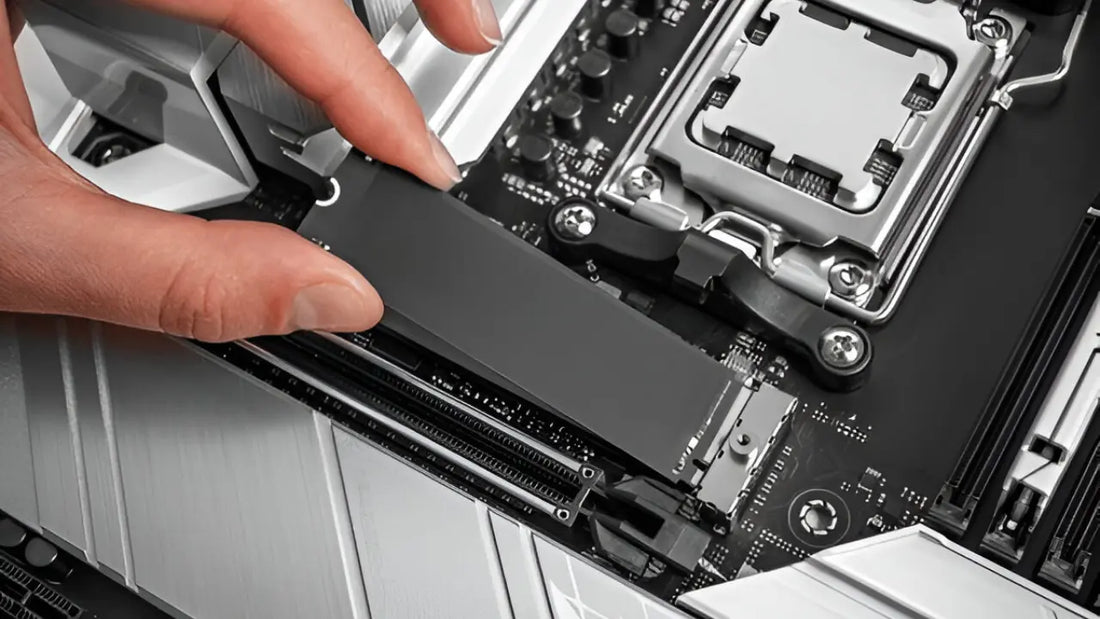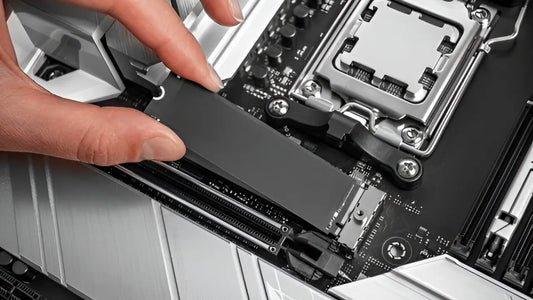
4 Must-Know SSD Testing Tools for Your New Drive
As one of the three core components of a computer, the solid-state drive serves as the storage medium, responsible for data storage. A quality SSD can accelerate file reading speeds and significantly impact user experience. When consumers receive new devices, they can test drive performance and verify quality using third-party software or other SSD testing tools.
Today we'll focus on four mainstream SSD testing tools. Note that testers need a certain technical foundation to complete these tests independently.
1. AS SSD Benchmark
AS SSD Benchmark (referred to as AS SSD) is a free SSD performance testing software from Germany. It covers crucial metrics including sequential read/write, single-thread 4KB random read/write, 64-thread 4KB random read/write, and drive seek times. Finally, it standardizes scores using formulas to scientifically reflect true SSD performance.
Sequential performance test conditions are as follows:
Seq: Sequential read/write speed test. AS SSD first writes a 1GB file to the tested partition in 16MB units, then reads this file using the same unit size, calculating average scores for results.
4K: Random single queue depth test. The software generates a 1GB test file in 512KB units, then randomly performs 4KB read/write tests within its address range (LBA) until covering the entire range, calculating average scores. Due to the generation step, this test produces 2GB of data writes. Test files are temporarily retained after completion. Since systems typically handle many small file operations, this metric is particularly important.
4K-64Thrd: Random 64 queue depth test. The software generates 64 test files of 16MB each (totaling 1GB), then simultaneously performs 4KB read/write tests across all 64 files, averaging the results. This step also produces 2GB of data writes. Test files are immediately deleted upon completion.
Acc.time: Data access time test. The software randomly reads across the full disk address range (LBA) in 4KB units for reads, and randomly writes within a reserved 1GB address range in 512B units for writes, presenting average results.
Score: Composite score based on the above tests. The total score applies coefficients of 0.1 or 0.15 to sequential read/write performance, and 1.5 or 2 to random read/write.
AS SSD scoring formula:
- Read Score = (Sequential Read × 0.1) + 4KB Random + 4KB 64-Thread
- Write Score = (Sequential Write × 0.1) + 4KB Random + 4KB 64-Thread
- Total Score = (Sequential Write × 0.15) + (Sequential Read × 0.1) + (Random 4KB Write × 2) + 4KB Random Read + 4KB 64-Thread Random Read + (4KB 64-Thread Random Write × 1.5)

2. CrystalDiskMark
CrystalDiskMark (CDM) is an SSD testing software developed in Japan. Its core function transfers files and measures the SSD's data transfer speeds. Testing is comprehensive, covering sequential read/write, 512K and 4KB random read/write performance, plus 4K random performance at Queue Depth 32. Queue depth describes the maximum simultaneous IO operations an SSD can activate – higher queue depths yield better actual performance.
Default test items include 1MB sequential read/write and 4KB random read/write performance:
- SEQ1MQ8T1: Sequential read/write with 1MiB blocks, Queue=8, Thread=1
- SEQ1MQ1T1: Sequential read/write with 1MiB blocks, Queue=1, Thread=1
- RND4KQ32T1: Random read/write with 4KiB blocks, Queue=32, Thread=1
- RND4KQ1T1: Random read/write with 4KiB blocks, Queue=1, Thread=1

3. CrystalDiskInfo
CrystalDiskInfo (CDI) is a tool for checking detailed SSD information on your system. Unlike CDM, CDI is software for viewing SSD status. CDI reads S.M.A.R.T. data to understand SSD health including interface, rotation speed, temperature, and usage time. The software evaluates based on S.M.A.R.T. scores and alerts users when drives are approaching failure.
Usage: After downloading and installing CrystalDiskInfo, open the software, select the SSD you want to test from the main interface, then view corresponding parameters and graphs. In settings, you can customize certain detection parameters.

4. HD Tune
HD Tune is a traditional SSD testing tool. Using HD Tune's file benchmark test for large continuous file read/writes can accurately reflect read/write performance and SLC cache size. Combined with different capacity disk states, it can also indirectly test SLC mechanisms. The software comes in free and paid versions, with the free version having limited functionality.
The specific method uses large file lengths (20GB+) with continuous writes until filling the SLC cache. The measured speed is the NAND speed, revealing both SLC cache size and NAND speed. Based on speed, you can infer NAND type and quality (e.g., TLC, MLC).

5. Practical Testing Example
Union Memory Note: These four testing tools require certain technical knowledge. When installing AS SSD, primarily check for 4K alignment and AHCI functionality. Always backup data before testing to prevent data loss.

In our testing with CrystalDiskInfo on the OSCOO MD006 across 512GB, 1TB, and 2TB capacities, the 2TB version achieved peak sequential read speeds of 2090.97 MB/s, demonstrating the drive's excellent performance capabilities.
No comments










0 comments